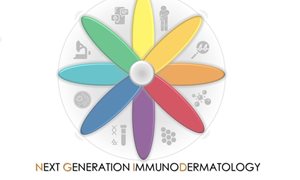17 January 2019
This year Leo Foundation granted Patrick Zeeuwen, theme Infectious diseases and global health, and Ellen van den Bogaard (co-applicant), theme Inflammatory diseases, 2.545.944 DKK (341 kEuro) for their project ‘Psoriasis, a microbiome-driven disease?’. This project aims to study the biology of Late Cornified Envelope genes and to translate these findings to the understanding of psoriasis pathogenesis.
 LEO Foundation ‘Open competition grants’ are given to support the best dermatology research projects worldwide that improve the understanding of the underlying medicinal, biological, chemical, or pharmacological mechanisms of dermatological diseases and their symptoms.
LEO Foundation ‘Open competition grants’ are given to support the best dermatology research projects worldwide that improve the understanding of the underlying medicinal, biological, chemical, or pharmacological mechanisms of dermatological diseases and their symptoms.
This year Leo Foundation granted Patrick Zeeuwen, theme Infectious diseases and global health, and Ellen van den Bogaard (co-applicant), theme Inflammatory diseases, 2.545.944 DKK (341 kEuro) for their project ‘Psoriasis, a microbiome-driven disease?’. This project aims to study the biology of Late Cornified Envelope genes and to translate these findings to the understanding of psoriasis pathogenesis.
Related news items

Large NWA ORC grant awarded for national skin research: Next Generation ImmunoDermatology
23 March 2022Research for better treatment methods for chronic skin diseases.
go to page
RIMLS awards call for nominations
19 October 2021 RIMLS awards several prizes to stimulate and honor our (young) researchers. Upcoming awards are Supervisor of the Year, Best Master Thesis, Best Publication, Best Image and more. Send your nominations now before 24 November 2021. go to page
Best publication award of 2019 in dermatology awarded to Jos Smits and Tom Ederveen
30 September 2020The Dutch Society for Experimental Dermatology (NVED) awarded the publication in Journal of Investigative Dermatology of Jos Smits and Tom Ederveen.
go to page
A new autosomal-recessive hypotrichosis syndrome
20 November 2018 Ellen van den Bogaard, theme Inflammatory diseases and Patrick Zeeuwen, theme Infectious diseases and global health, report the first family with cystatin M/E deficiency in Genetics in Medicine. go to page

